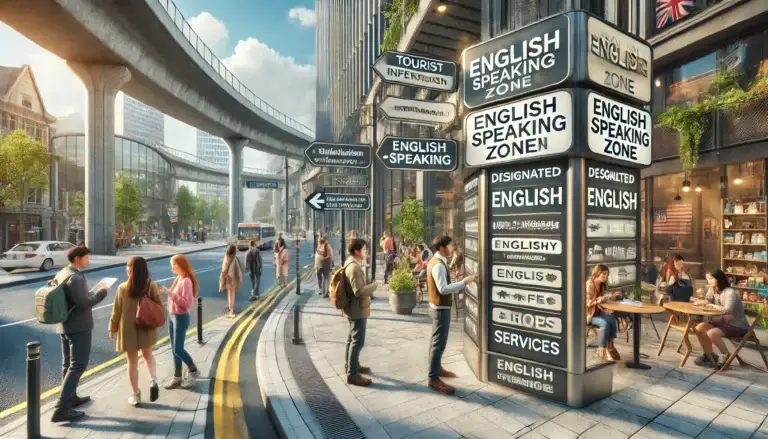5 Things To Know Do People In France Speak English Now do-people-in-france-speak-english
Hello there, my lovely readers! Do people in france speak english? That’s such a good question, and I’m so glad you’re curious. Let’s imagine you’re strolling along the charming streets of Paris, searching for the best croissant in town. You might wonder if you’ll be able to order in English or if French is the only language around. Today, I’d love to help you feel more comfortable by sharing five important insights to guide you through this very topic. By the time you finish reading, you’ll know all about french english usage, have a clearer idea of the language in france, and pick up some traveling tips france has to offer. So, shall we begin?
First and foremost, it’s important to understand that English is widely taught in French schools, which means many younger people can speak a bit of it. However, how much they speak it or how comfortable they feel using it can vary from person to person. Because of this, you might find yourself getting by just fine if you know a few key phrases. But if you’re stuck, it’s helpful to realize that not everyone is equally fluent. That’s when a polite “Parlez-vous anglais?” comes in handy, along with a big smile.
Second, remember that the language in france is cherished with pride, and locals appreciate when travelers give French a try. Even if your accent is far from perfect, just learning “bonjour” and “merci” makes a big difference. I promise, your French hosts will light up when you make an effort, especially because it shows you value their culture. Don’t be shy! This simple step goes a long way in bridging the communication gap, encouraging friendlier interactions, and ensuring you have a smoother time overall.
Third, consider that many tourist-heavy areas, like the Eiffel Tower or the Louvre, have multilingual signs and employees who can assist you in English. You’ll often see staff members who speak English at hotels, train stations, and major attractions. This is one of my top traveling tips france offers to visitors: if you’re in a well-known tourist spot, chances are good that you’ll run into someone who speaks English just fine. Of course, heading out to smaller villages can be a different story, but that’s part of the adventure!
Fourth, it helps to be aware of how french english usage might pop up in everyday situations. Sometimes you’ll see “anglicisms” in French menus or advertisements. This reflects a certain blending of cultures, so don’t be surprised to spot a familiar English word here and there. Still, it’s wise to keep a small phrasebook or translation app close by just in case. That way, you can feel prepared to communicate even if you find yourself outside the main cities.
Fifth, I recommend embracing the local lifestyle. Whether that means taking a brief language class, watching French movies with English subtitles, or simply picking up a phrase or two before you travel, these efforts make your trip unforgettable. By doing so, you’re not only helping yourself but also showing respect for the language in france. In return, locals are more likely to open up, share hidden gems, and maybe even guide you toward the best neighborhood bakery.
Now, as curious travelers, we can’t help but compare how other countries handle English. If you want to explore how other parts of Europe manage this linguistic puzzle, let me point you toward a handy resource: 7 Key Facts Do Most Germans Speak English Worldwide. You’ll find plenty of insight there, especially if you’re planning a grand tour across Europe and wondering just how far your English skills can take you.
Before you conclude that English isn’t spoken enough in France, remember that experiences differ. In bigger cities, you’ll find more English speakers. In smaller towns, you might need a little French or a great sense of adventure. The good news is that traveling tips france enthusiasts swear by usually involve blending courtesy, curiosity, and a few French words here and there. So if you’re still asking yourself, “Do people in france speak english?” the answer is a resounding yes—but with varying degrees of confidence. Don’t let any language barrier hold you back from exploring this beautiful country. Grab your sense of wonder, pack your willingness to try new phrases, and you’ll do just fine!
Table of Contents
French English Usage: Unraveling Popular Expressions
Hello again, my bright explorers! Do people in france speak english? It’s a question that comes up often, especially when you’re preparing for a trip and wondering if you’ll be able to ask for directions or chat with new friends in English. While many French people do have some English skills, you might be surprised at how fascinating french english usage truly is. Today, I’d love to talk about those delightful English phrases that have woven their way into everyday French life, plus share a few pointers that’ll help you feel more confident in english speaking zones. And I promise, these communicating abroad insights will make your journey even more exciting!
Let’s start with a peek at french english usage in casual conversation. You might hear French locals slip in an English word here or there, especially in younger circles. It could be things like “weekend,” “cool,” or even “shopping.” Over time, more English words have found their way into modern French, so you’ll notice a certain mix of expressions in bigger cities like Paris or Lyon. This blend makes traveling easier, in many ways, because you might spot an English word on a cafe menu or see it in an advertisement. Of course, this doesn’t mean everyone is fluent, but it sure can help you feel a tiny bit more at home!
One thing I recommend is practicing polite phrases in French but also being ready with some helpful English expressions. For instance, if you’d like a bit of universal courtesy, a friendly smile and a phrase like “Excuse me, can you please help me?” might open up the door to smoother conversations. Sometimes, english speaking zones exist within major tourist spots, but once you leave those areas, it pays to have a little French on hand. If you’re feeling nervous, remember that a simple greeting like “Bonjour!” shows respect and often encourages locals to respond kindly.
Now, let’s talk about communicating abroad insights that might come in handy. If you ever worry about being misunderstood, there are wonderful translation apps that can give you on-the-spot guidance for both French and English phrases. Also, never underestimate the power of body language. Enthusiastic pointing and friendly gestures can make your meaning clear even when words get tangled up. This is especially helpful if you’re off the beaten path or meeting someone not used to foreign visitors.
Along with the growing mix of languages, you’ll find that social media and entertainment play a significant role in bridging communication gaps. More French youngsters watch English movies or stream English shows, picking up slang and everyday terms that boost their comfort level with the language. This means that even if you’re traveling in areas that aren’t specifically english speaking zones, you might still meet folks who understand bits and pieces of English from popular media.
To expand your global perspective, you may also want to explore other countries where English is a major asset for newcomers. Feel free to check out 5 Best Countries To Move From US That Speak English Easily if you ever daydream about moving somewhere that makes the language transition smoother. And if you’re aiming to polish your professional English skills for cross-border business opportunities, you might enjoy this gem: Master Business English in 2025: Vocabulary, Idioms, and Conversations.
However, let’s not forget that the French take great pride in their language. By learning a few polite words and understanding some cultural nuances, you’ll earn their respect and cooperation. Practicing “Merci beaucoup” or “S’il vous plaît” goes a long way. People in France often appreciate seeing an effort to connect, even if it’s just a simple phrase or two. So, do people in france speak english? Certainly, and they often welcome the chance to show off what they know, especially in bigger cities or busier tourist destinations. You just have to be ready with a friendly smile, a sprinkle of French words, and a willingness to learn from one another!

Language in France: Cultural Nuances and Practical Tips
Do people in france speak english? Absolutely yes, though the extent can vary depending on where you go. As we talk about the language in france, it’s hard not to admire its soft, melodic nature. At the same time, we also see how the global influence of English has led many French people—especially the younger generation—to pick up English vocabulary. But how does one navigate everyday life in France when you’re not entirely sure how much English people speak? Let’s explore some cultural nuances and traveling tips france fans can’t stop raving about, plus a look at english speaking zones you might want to keep on your radar.
First off, the language in france is treasured as part of the country’s identity. The French government, through various initiatives, encourages everyone to preserve its purity and charm. This love for their own language is beautiful, but it also means that not everyone feels obligated to practice speaking English, especially if they’re not in a career that requires it. However, if you visit cosmopolitan areas like Paris, you’ll often find locals who’ve had some schooling in English. They might be shy about it, but many can understand you enough to offer directions or help you find what you need.
Next, let’s talk about traveling tips france enthusiasts often share with newcomers. If you plan to visit smaller towns or the countryside, be prepared to encounter fewer English speakers. But fear not—this can be part of the fun! Learn a few handy French phrases, like “Où est la gare?” (Where is the train station?) or “Combien ça coûte?” (How much does it cost?). Also, keep your translation app close by in case you find yourself truly stumped. The effort you show in speaking French is typically met with kindness and patience, so don’t be worried about making little mistakes.
Regarding english speaking zones, most large cities will have areas popular with expats and international students. Places near major universities, business centers, or trendy neighborhoods will likely have higher concentrations of English speakers. You’ll also notice that many signs in tourist-heavy districts are bilingual, giving you instructions in both French and English—very handy when you’re in a rush or unsure about specific transit rules. And if you’re traveling by train, announcements in major stations might be repeated in English.
Culturally, one of the friendliest ways to bridge the language gap is by embracing the art of politeness. The French place high importance on greetings. Always start with “Bonjour” in shops, restaurants, or when asking for help. Adding “s’il vous plaît” and “merci” to your vocabulary will show respect and gratitude, and people are often more inclined to assist you. In turn, you might be pleasantly surprised to hear them respond in English if they’re comfortable enough.
If you’d like to see how speaking other languages can boost your communication skills, you might enjoy exploring 6 Ways To Speak English In Spanish For Quick Progress. While it’s focused on Spanish, the principles of immersing yourself in another tongue also apply to French. Trying out new languages can be a fun challenge, and it breaks down barriers that might otherwise hold you back when traveling.
Whether you’re there to study art in a Parisian atelier or just to admire the lavender fields of Provence, do people in france speak english? They sure do, particularly in larger urban hubs, but it’s always wise to have backup plans. Keep an open mind, practice essential phrases, and watch as locals appreciate your willingness to embrace the language in france. With these traveling tips france has to offer, you’ll be well on your way to blending in. A simple “merci” or “pardon” can open doors you never knew existed, and that’s part of what makes traveling in France so magical!
English Speaking Zones: Tourist-Friendly Areas Across the Country
Do people in france speak english? Yes, they absolutely do—though how confidently they speak can range widely from city to city. As a gentle teacher who adores France, I’m delighted to share some insights into how you can pinpoint certain english speaking zones during your travels. We’ll also sprinkle in a bit of communicating abroad insights, chat about french english usage, and touch on the language in france as we go along.
The first thing to know is that large international airports and train stations in major cities are prime english speaking zones. For instance, you’ll often find multilingual staff at Paris Charles de Gaulle Airport who can assist you in English. Additionally, employees in big transportation hubs are generally accustomed to international visitors and try their best to accommodate. This makes your first steps into the country much smoother, especially if you arrive feeling a bit jet-lagged and disoriented.
As you venture into Paris itself, you’ll see that popular tourist sites—like the Louvre, the Eiffel Tower, and Notre-Dame Cathedral—are also rich with opportunities for french english usage. Information desks, ticket counters, and guided tours are frequently staffed by folks who speak at least some English. The signs around these attractions might include English translations, ensuring that you don’t miss important details about museum exhibits or safety guidelines. It’s worth noting that while big cities can be more welcoming in terms of English, smaller towns might require more reliance on French or a translation app. But that’s all part of the cultural adventure!
When you dig deeper into the language in france, you’ll notice pockets where English usage is more common. Some universities that host exchange programs attract international students, creating small communities that frequently communicate in English. Likewise, trendy neighborhoods with a lively arts or culinary scene can draw visitors and business owners from around the world, often turning these districts into unexpected english speaking zones. If you’re looking for a sense of familiarity, keep your eyes peeled for English-language bookstores or restaurants offering bilingual menus—a good indicator of a place that welcomes English speakers.
If you feel daunted by the possibility of language barriers, allow me to share a few communicating abroad insights. First, always greet people in French. A cheerful “Bonjour!” followed by a polite question, “Parlez-vous anglais?” sets a friendly tone. If they respond in French, don’t panic. Use a few basic French words you know, or show them the phrase you’re trying to convey in writing. Often, a combination of gestures, digital translators, and a warm smile can solve most communication hiccups. People tend to appreciate your effort, even if it’s just a little bit.
Of course, if you’re eager to explore how language shifts in other places, you can also take a look at 8 Steps How Do You Say Do You Speak English In Spanish. You’ll gain a fun perspective on how important it is to know essential phrases in any country you visit. Knowing how to adapt and learn quickly helps you connect with locals and fosters a more rewarding travel experience overall.
So, do people in france speak english in these designated english speaking zones? Absolutely, but it’s always wise to tread kindly and show willingness to dip your toes into French whenever possible. Even a simple “Merci” or “Au revoir” can brighten someone’s day and reflect your respect for their culture. By balancing your own comfort with curiosity and openness, you’ll navigate France’s tourist-friendly areas (and beyond) with relative ease. Soon enough, you’ll have stories to share about the hidden gems you discovered, the friendly people you met, and the charming local customs you experienced—all thanks to a little bit of language awareness and an adventurous spirit!

Traveling Tips France: Do People in France Speak English for Smooth Journeys?
Do people in france speak english? That’s a question I hear all the time when it comes to traveling tips france newcomers find most valuable. And I’m here to reassure you: yes, they often do, especially in urban hotspots and among younger generations. Still, it helps to be prepared by knowing which english speaking zones are easiest to navigate and embracing some communicating abroad insights to smooth out your journey.
To start, planning ahead is your best friend. If you’re worried about language barriers, take a bit of time to learn some basic French greetings and common phrases. Politeness goes a long way in France, so a well-placed “Bonjour,” “Merci,” or “S’il vous plaît” can open doors to more friendly interactions. Locals appreciate the effort, and it shows genuine respect for their language and culture. The more you try, the more comfortable people may feel about switching to English to help you out.
Next, zero in on english speaking zones when you need them most—like at major train stations or tourist information centers. Whether you’re at the Gare du Nord in Paris or a visitor bureau in a smaller city, these facilities are typically staffed by people who have at least some English skills. It’s also helpful to keep in mind that most big hotels cater to international guests, so receptionists and concierges are often ready to converse in English, offer directions, and share local secrets you won’t find in a guidebook.
If you’re worried about traveling outside the main cities, you might draw on more communicating abroad insights. Download a translation app that works offline, just in case you run into spotty internet coverage while touring the countryside. Storing a list of French phrases on your phone—like how to ask for the bathroom or how to order a meal—can rescue you from embarrassing moments. And if you find yourself completely stuck, don’t hesitate to use gestures or point to words. It might feel silly at first, but this universal method often bridges communication gaps when language skills are limited.
Another important traveling tips france offers is to practice patience. For instance, even in bigger cities, not everyone speaks English fluently, but many are willing to try. That said, they might speak slowly or look for simpler words to make sure you understand. Embrace this gentle pace, and feel free to ask them to repeat something if you didn’t catch it. Communication is a two-way street, and most locals admire a visitor who respectfully navigates language differences.
Since you’re probably curious about how English is used in other parts of the world too, let me suggest this interesting read: 5 Facts If You Wonder Do They Speak English In Costa Rica. It’s always fun to compare how different countries approach English, especially if you’re planning multiple international trips. After all, understanding how to blend in or ask for help politely is a skill that transcends borders.
So, do people in france speak english enough for smooth journeys? In many situations, yes, you’ll be just fine. Particularly in tourist-centric areas, you’ll likely find someone who can help you out in English, or at least meet you halfway with a mix of French and English. The key is to stay open-minded, polite, and ready to try a bit of French yourself. Embrace the culture, take advantage of english speaking zones where available, and gather all the communicating abroad insights you can. By doing so, you’ll transform potential language hurdles into stepping stones for more authentic and meaningful travel experiences. Bon voyage and have a wonderful time exploring la belle France!
Communicating Abroad Insights: Bridging the Gap with Locals
Do people in france speak english? This question often sparks excitement among those planning a first-time trip to France or simply curious about the cultural dynamics there. In many cases, yes, but learning a few clever strategies for bridging that language gap can be a real game-changer. By mastering some traveling tips france visitors swear by, understanding the language in france, and appreciating how french english usage works on a daily basis, you’ll set yourself up for a smoother, friendlier adventure.
One of the best ways to make meaningful connections is to approach locals with warmth and respect. Begin conversations with “Bonjour,” and if you sense they’re open to it, politely ask if they speak English: “Parlez-vous anglais?” If they say yes, wonderful—you can proceed comfortably in English. If they say no, don’t stress. A bit of patience and a cheerful attitude can still go a long way, supplemented by gestures, a phrasebook, or your smartphone’s translation app. More often than not, even those who claim they speak “very little English” actually know enough to help you find a café or direct you to the nearest metro station.
When investigating french english usage, you’ll find plenty of English loanwords in modern French. From “weekend” to “le shopping,” certain English terms slip into everyday chatter, especially among the youth. This cultural blending shows that the French language evolves in response to global influences, just like any other language. Nevertheless, keep in mind that many French people feel a strong sense of pride in their linguistic heritage, so trying a bit of French (even if your accent is wobbly) shows you respect that cultural identity.
Now, about the language in france itself. French is known for its subtle nuances and strict grammatical rules, and locals usually speak it with great finesse. Learning key phrases—even a handful—will demonstrate good manners and can help you navigate everything from buying train tickets to ordering a croissant. If you’re shy, try practicing these lines beforehand or jot them down on a little cheat sheet. Don’t underestimate the power of a friendly “Merci beaucoup!” or “S’il vous plaît.” These small steps can help you bond with locals, who’ll appreciate your genuine interest in their mother tongue.
In addition, traveling tips france enthusiasts share often include seeking out expat communities if you need a touch of home or if you find yourself struggling with total language immersion. Cities like Paris, Lyon, and Nice have pockets of English-speaking residents—think students, businesspeople, or artists—who might welcome fellow English speakers with open arms. Connecting with these groups can offer a sense of support as you adapt to new linguistic and cultural surroundings.
Finally, for those who want to go deeper and connect with French locals on a more personal level, consider enrolling in a short language course. Even a few hours a week can sharpen your listening skills and help you feel more confident in everyday scenarios. Plus, you’ll likely meet people from around the world, forging friendships built on a shared goal of improving language abilities.
So, do people in france speak english? Overall, yes, but combining courtesy, patience, and a dash of French will make your interactions shine. Embrace the inevitable small missteps and you’ll find that bridging the language gap can lead to charming stories, memorable friendships, and a deeper appreciation for the nuances of French culture. Here’s to your next adventure, enriched by every “bonjour” and “merci” you offer along the way!
Evolving Trends: Do People in France Speak English More Confidently Today?
Do people in france speak english more confidently today? That’s a wonderful question, and one that’s sparked plenty of discussions among language learners and travelers alike. If we compare the situation to a decade or two ago, you might notice that younger generations and professionals in english speaking zones are increasingly at ease speaking English. These shifting norms often stem from expanded global media, the internet, and communicating abroad insights. However, the reasons behind this evolution are multifaceted, and it’s fascinating to see how they tie into the overall French perspective on language learning. Let’s delve deeper, weaving in the concept of Blog Title: as well.
For starters, access to international content—like streaming platforms, social media, and online education—has grown substantially. More French youth watch shows in English or follow creators who produce content in English. This natural exposure helps them pick up vocabulary and phrases, turning them into more confident English speakers than past generations. Additionally, many universities and workplaces in english speaking zones within France now encourage bilingualism, seeing it as an asset in a globalized world. Because of these changes, do people in france speak english better than before? Generally, yes, especially when you encounter younger crowds or those with jobs tied to international markets.
Communicating abroad insights show us that cultural shifts also play a part. Decades ago, French policy strongly emphasized preserving the French language by limiting the influx of foreign words. While that pride remains, there’s an acknowledgment today that English is essential for staying connected with the rest of the world. This evolution doesn’t mean French is diminishing in importance—far from it. Rather, it’s about finding a balance between cherishing one’s mother tongue and adapting to global communication needs, which is something Blog Title: often explores in its travel and language articles.
If you’re roaming around urban centers—Paris, Lyon, Bordeaux, or Marseille—you’ll spot signs that reflect this modern approach. Cafés might promote events using English words, or local boutiques may welcome customers with bilingual signage. Of course, not everyone is fluent. But the acceptance of English has grown. This often appears in casual conversation where French speakers sprinkle English phrases or pop culture references. So, do people in france speak english for day-to-day tasks? More and more do, especially if they work in tech, tourism, or international business. In fact, many professionals seek out advanced English courses or exchange programs to refine their abilities.
Another reason behind this rising confidence stems from technology, which offers easy access to language-learning tools. With language apps, online tutors, and global news in English, staying immersed is simpler than ever. Whenever they want, learners can practice, watch, or read materials in English. These digital resources amplify exposure, especially in areas where English classes are becoming more dynamic and fun. When combined with a shifting cultural mindset, you get a new generation of French speakers who can converse more comfortably in English than their grandparents or even parents could. That is precisely the kind of trend Blog Title: tries to capture, documenting how globalization shapes linguistic habits worldwide.
Still, it’s important to remember that not all regions have the same level of English exposure. Rural areas may prioritize local dialects or see fewer international visitors, meaning the inhabitants might not have as many opportunities to practice English. However, thanks to improvements in internet connectivity and tourism, even these places are warming up to the idea that bilingualism can open up new career and cultural doors. Does this mean the entire country is now brimming with English speakers? Not exactly, but the overall trajectory is quite positive.
If you ever find yourself wanting to learn more or simply share your own experiences, feel free to reach out: Contact Us. You’ll find that Blog Title: is always eager to embrace new perspectives on how English shapes our travels, relationships, and opportunities in France and beyond. In the end, do people in france speak english more confidently today? In most major cities and among the younger generation, absolutely. And with each passing year, that confidence seems to grow—reflecting a vibrant, ever-evolving blend of French tradition and global influence that makes France such a remarkable place to visit or live.
Related Posts

Do People in Turkey Speak English What You Should Know
Do people in Turkey speak English Learn where English is spoken and how easy it is to communicate as a traveler

Can You Speak English How to Ask and Answer Politely
Can you speak English Learn the best ways to ask and respond to this question politely in different travel and social settings

7 Books to Expand Your English Vocabulary Fast
Books to expand vocabulary help you speak and write better Discover top books that make learning new words enjoyable
